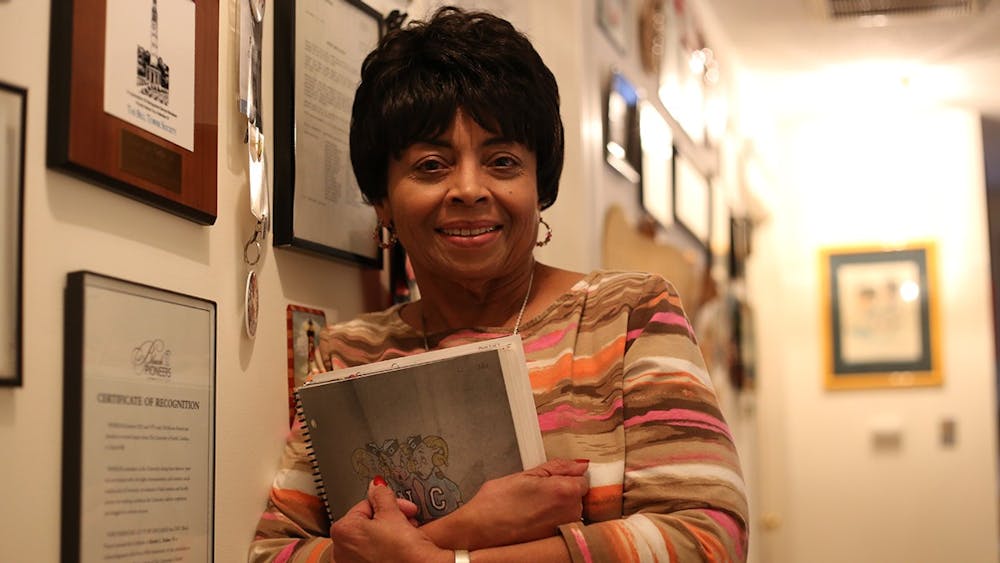The Eve Marie Carson lecture series has aimed to bring trailblazing leaders to campus to speak with UNC students since it began. This year, students will hear from Karen Parker, class of 1965, a prominent North Carolina journalist and the first Black female undergraduate to attend the University.
The Carolina Women’s Leadership Council, along with the Will Froelich Honors Fellows, will be presenting the event virtually on Dec. 2. The series began in 2007 and was renamed in 2010 to honor Eve Carson, the student body president who founded the lecture series before she was murdered.
“This speaker series was put together to honor Eve’s life and love of Carolina, and the speakers that are selected for this series are strong leaders and have a commitment to public service just like she did,” Meghan Kelley-Gosk, director of the Will Froelich Honors Fellowship Program, said.
Parker said being asked to speak at this year’s event had a special meaning for her.
“I was touched because I knew Eve Carson,” Parker said. “We were on the Alumni Board at the same time – she was student body president. I was very impressed with her, and was convinced that she was going to be somebody great one day.”
Her keynote address will touch on her experiences at Carolina during the Civil Rights Movement. She cited one instance when she and her friends were shot at by members of the Ku Klux Klan at a reunion party for a group of civil rights demonstrators.
“All of a sudden, bullets started – we could hear gunshots,” Parker said. “Apparently the Klan objected to my being there ... There was a Volkswagen bug in the yard, and they put me on the floor of the Volkswagen in the backseat. About four people piled in on top of me, and then they stayed until the Klan commotion was over.”
Neha Nataraju, a first-year business major, said these types of experiences make hearing the stories of firsts like Parker so important.
“Whether it's the first Indigenous person to come on campus, or the first Black woman, or the first trans woman, all of those marginalized communities need a voice,” Nataraju said.




